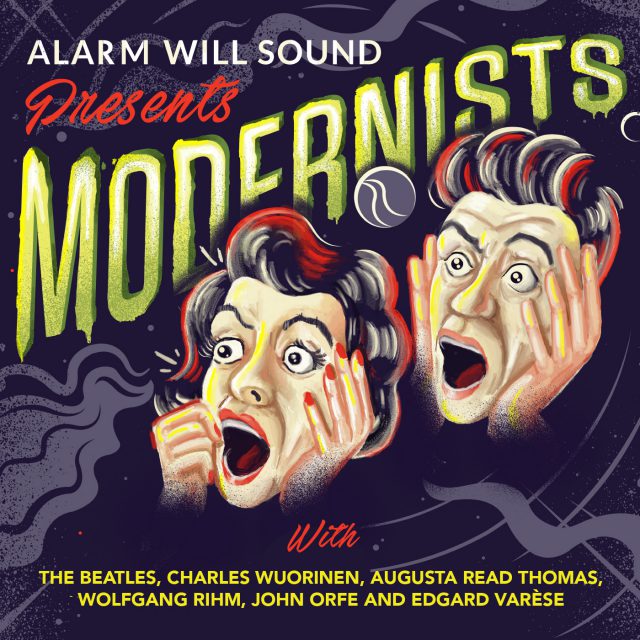
Alarm Will Sound Presents Modernists is available now from Cantaloupe Music.
Modernism scares people. Is it because it’s new? That can’t be the whole explanation because everybody likes to discover new things, right? Maybe it’s the amount of newness. While discovery always involves a degree of unfamiliarity, modernism can drive really far into unfamiliar territory, becoming distant from any known landmarks. So much unfamiliarity can be scary.
It can even be alienating. The unpopularity of Revolution 9 (by one of the world’s most popular bands) is the evidence that The Beatles experimentation with found sound, tape loops, and studio technology pushed their fans away. Revolution 9 is modernist because it is a song that’s not a song, something so unfamiliar that it not only breaks with the past, but also breaks its own category.
Varèse’s Poème électronique must have also seemed like a categorical contradiction: poetry created on machines?! The piece—no less than its title—expresses his modernist zeal through never-had-a-past electronic sounds. “The world is changing, and we change with it. The more we allow our minds the romantic luxury of treasuring the past in memory, the less able we become to face the future and determine the new values in it.”
So leaving the past behind on the way to the future is the modernist mission. Or was. Perhaps paradoxically, modernism itself has become a tradition. Wuorinen, Rihm, Thomas, and Orfe are part of that tradition: their harmonies and rhythms are no longer unfamiliar. Yet we think of them as modernists because of their zeal for here-and-now experimentation, even as they draw on sounds and shapes that were meant as a future-bound break with the past. Playing these pieces—actually running the composers’ experiments through our hands and on our instruments—is the way we connect ourselves as musicians to the modernist tradition.
That said, Varèse probably would have hated the fact that we—not electronic machines—perform Revolution 9 and Poème électronique:
If you are curious to know what such a machine could do that the orchestra with its man-powered instruments cannot do, I shall try briefly to tell you: whatever I write, whatever my message, it will reach the listener unadulterated by “interpretation.”
He’s afraid his message cannot be carried by musicians, steeped in tradition, who decide how to play his creation on old technologies of wood, brass and string. So much familiarity—Varèse might be scared too.
These two are powerfully bound up in modernism. For us, though, performing this music is really joyful. It starts with the joy of sharing music that we really love. We also get a kick from meeting a virtuosic challenge (some of this music is really hard!), especially the challenge of recreating electronic originals on acoustic “man-powered instruments.” There is joy too in playing with the powerful tension, central to the modernist tradition, between past and future. Figuring out how the the familiar and the unfamiliar connect and disconnect and connect again is fun. Scary fun.


